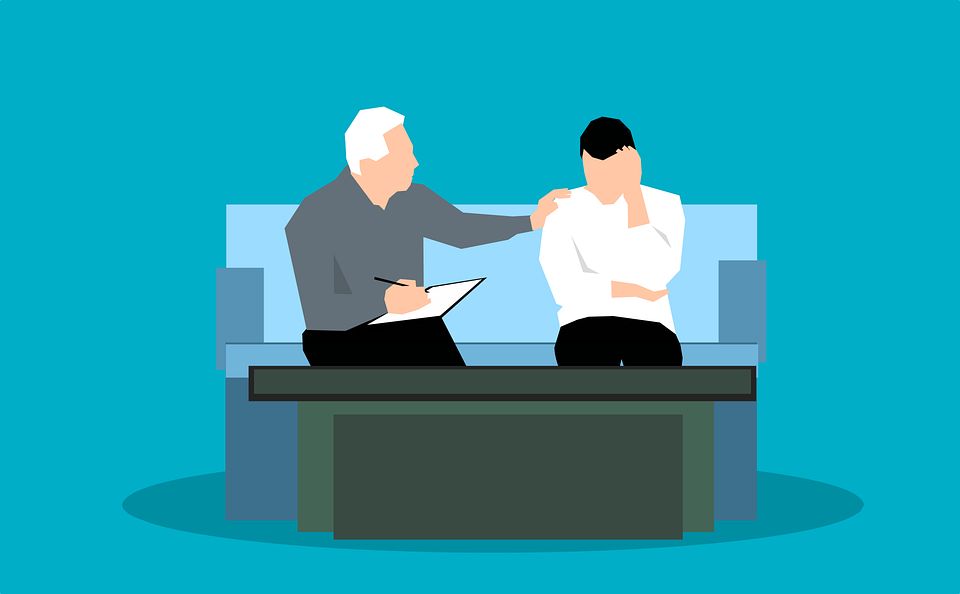How To Locate An Excellent Therapist?
A close friend who can assist you get started in therapy is not available to everyone, but with the right information you will be well-prepared to undertake it on your own. In order to do this, you'll need a lot of time and effort, both of which will be in short supply while you're sorting through mountains of whatever life has to throw at you. To be sure, the ultimate product may be more valuable if the technique is more difficult than it initially appears to be. Here's everything you need to know, even if you're a complete novice.
When is the first time to seek professional help?
Counseling is often associated with "emergencies," such as a divorce, the death or illness of a loved one, the loss of a job, drug or alcohol addiction, and the like. When you're willing to put yourself in the hands of a therapist, though, therapy can be useful at any time. In New York, a professional psychotherapist tells a client, "It's an excellent time to go to treatment." "The operation becomes more difficult the longer you wait."
Counseling is often sought after a major life change, such as moving to a new city, graduating from college, starting a new job, or becoming a father. According to a trained mental health counselor, "People still require care in transitional, non-crisis situations. "A lot of people come to sessions with a general feeling that something isn't quite right, and they want to investigate multiple areas of dissatisfaction with where they are compared to where they think they should be," he adds.
What are the most common treatments, and how do you know which one is suitable for you?
The field of therapy has a wide range of camps and sub-camps. Psychology Today has an extensive listing and quick reference to the most common modalities, which are also known as types in the field as "modalities." Inquiring about the chosen method and whether or not your therapist believes it will be useful to you before arranging your first appointment is essential.
There are several treatment options, but two of the most common are cognitive-behavioral therapy (CBT) and psychodynamic therapy (PDT) (or PDT). A quick summary of what's going on:
Cognitive behavioral therapy (CBT) focuses on identifying problematic behavior patterns (such as compulsive purchasing) as well as the negative, unrealistic beliefs that feed them. By helping the patient see the error of their ways ("Actually, people will like me just as much if I don't buy these clothes"), the therapist can help the patient develop more effective coping mechanisms. Worksheets or other tasks from a therapist might help you better understand your own thoughts and behaviors.
CBT has been found to be effective in treating PTSD and generalized anxiety in several trials, although some claim that it doesn't address the root causes of such symptoms, which can lead to recurrences.
Psychodynamic therapy may be a better option if your issues are more complex and/or widespread. Many people's preconceptions about traditional therapy are more closely aligned with this: What it means is travelling back in time to have a better understanding of your past so that you can avoid reliving the past in the present. An abundance of research has proved PDT's efficacy in treating a wide range of mental health issues (when physical symptoms, like stomach aches, which are due to psychological stress rather than physiological illness). There is a lot of discussion and an openness to an exploratory method that is essential for the treatment to work.

Which therapist should you begin your search with?
It's not a bad idea to get a therapist's reference from a buddy. However, you should think about whether your friend will feel comfortable telling you about her therapy if you ask her. Additionally, some therapists are unable to treat patients who are close to them due to ethical or personal reasons. You can request a referral to a colleague from your therapist in any case. As one East Northport therapist puts it, "Therapists often have amazing networks in their region, and if they aren't able to see you personally, they may suggest you to someone who shares your values and approach."
Consider the internet as well. Based on where you live, you may be able to find a local association that lists licensed practitioners in your area. Your insurance plan's database may also be a good place to look if you want to be covered by insurance. A personal website or other online profile with further information may be available if you search for the therapist's name in many directories (or just use the directory's search function). However, it's important to bear in mind that not all therapists have a robust online presence. It's difficult to find an online presence for many therapists. That doesn't mean they aren't capable therapists. Rather than implying incompetence, it might point to overworked therapists who lack the time to market themselves.
So, what's the actual deal with insurance?
Many therapists, however, do not accept insurance right away. (Insurance companies label them as "out-of-network" providers.) Depending on your insurance plan, though, you may be able to get some of the cost covered. Therapists find it difficult to bill insurance companies these days, according to one, "therefore many of them will give you a receipt you can then email to your insurance company and try to get reimbursed yourself."
The reimbursement process might be difficult to understand, but once you do, it's rather easy to handle. Setting aside some time and calling the number on the back of your insurance card will suffice. Referral to someone who can help you with questions about mental health benefits is requested (some insurance companies have special representatives just for that). Make sure to check about the coverage they offer after putting up with the music. There are just a few steps left if they agree to cover a percentage of your therapy expenditures (or even all of them, provided you have a solid plan). In order to get reimbursed, all you have to do is submit in your therapy receipts together with an insurance form once a month.
However, your insurer will only cover therapy if your therapist provides a clinical diagnosis. A medical record and a billing system used by your insurance company must be kept by the therapist if you want to claim benefits. It is possible that your therapist will offer you this diagnosis during your first or second session, which you should discuss with your therapist (you should also feel free to ask). As long as you're getting help for anorexia or post-traumatic stress disorder, your diagnosis will be narrower, such as "moderate sadness or anxiety," than if you're seeking help for something more general (as I was).
Getting ready for your first counseling appointment might be a daunting task.
Send an email or call to each potential therapist on your list once you've finished compiling it. Make sure you have a backup plan in place if they don't have any openings or can't work with your schedule or insurance. In the event that they are unable to satisfy your needs, they should recommend you to a therapist who can.
The therapist's background and attitude should be inquired about over the phone (15 minutes or less) or by email, in addition to the scheduling and logistical details (appointment hours, location, charge). You're interested in getting a feeling of the therapist's enthusiasm for their work. Asking inquiries such, "Have you ever been to therapy?" is a good place to start. "What sparked your interest in becoming a therapist in the first place?" This will help provide the foundation for your therapy sessions and explain why you and your therapist are in the same room.
The therapist's experience working with people in your demographic or community might also be a factor in your decision. The therapist's specialization is important to know before scheduling an appointment if you are in your 30s and the therapist specializes in the treatment of toddlers. Please tell me if you have any knowledge of the LGBTQ community.
A therapist who shares your gender identity, speaks Spanish, or comes from a similar cultural background is also ideal. Keep an open mind, though. Some of these demands can be explored in a way that helps you to be more flexible by a trained therapist.
What is the best way to handle the issue of the therapist's fees?
Although trained therapists can manage these conversations without any problem if the costs are prohibitive, it may still be tough. You should have an estimate of how much your first session will cost before you go in, because you will be billed for it (some therapists don't, but the vast majority do). Talk to your therapist about making it more inexpensive if you can't afford it at first. If you can't afford their services, you may usually negotiate a lower fee with them.
The cost of therapy should not be overlooked. Depending on where you live, it might cost up to $60–$120 every session, but the long-term advantages should offset the expenses.
Unlicensed interns should be sought out only under strict supervision, therefore ask for the name of their supervisor to be sure they're not a fraud. In order to obtain their licensure, interns must complete a set number of hours of clinical work under the supervision of a licensed physician or other healthcare professional. They have the potential to be outstanding clinicians, too.
During the first encounter, are there any red signals to be aware of?
When you make your first appointment, pay attention to how you feel in the room. Is it a good temperature for you? Yes, you can comfortably sit on the furniture. If so, what's that weird odour? It's possible that your therapist gets distracted by a computer screen, beeping sound, or spider on the ceiling. Is the location secure and private? If not, talk to your therapist about it. Things like these don't always have to be show stoppers at the outset, but being aware of how you feel and communicating that is important.
Having a little trepidation before a presentation is normal; nonetheless, you should strive to voice your concerns as soon as feasible. Therapy is a safe place where you may talk about whatever is bothering you, even if it's difficult to do so in front of others. This information will be appreciated by most people since it will allow them to help you.
At the conclusion of the day, you should feel a strong connection with your therapist. In order to have a connection, you need chemistry at the heart. Even if the work is difficult, you should look forward to seeing your therapist because you love talking to them.
Therapists say, "You should be able to feel that your therapist is fully there with you during your session." Your therapist should only be multitasking if it's directly related to your therapy. As the saying goes, "They should never fall asleep on you." However, she adds, remember that your therapist is also a person, and their mistakes may be an asset to your relationship. If they do anything that bothers you, can you tell them about it? What kind of non-defensive, boundary-preserving apology or response can they offer? We create trust through repairing and reconnecting with one other."
Exactly how can you know if it's "working?"
"You should consider switching therapists if you don't feel like you've made any progress after four to five sessions with someone," one East Northport therapist suggests. Defining progress is up to you; don't expect to be able to check boxes is unrealistic. That goes for your therapist as well; you shouldn't expect them to "fix" you. Even the best therapists in the world can't change a person's rate of development. You also have a duty to strive to alter the trajectory of the relationship.

